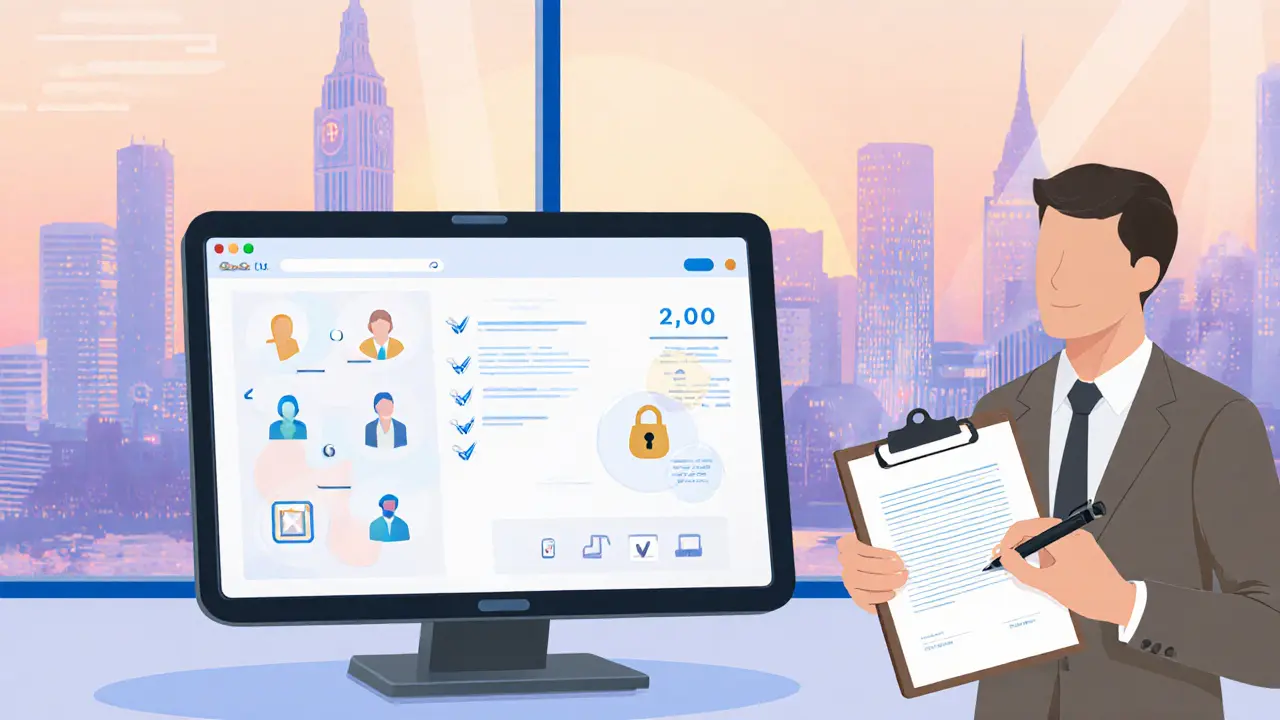People hear a lot of sensational headlines about the London escort industry is the network of independent escorts, agencies, and online platforms that provide companionship services for a fee in the capital city. Most of the time, those headlines are built on myths, stereotypes, or outright misinformation. This article pulls back the curtain, separates fact from fiction, and gives you a clear picture of how the business really works today.
Key Takeaways
- The industry operates under a specific legal framework that distinguishes consenting adult sex work from illegal activities.
- Most escorts are professionals who set clear boundaries, charge transparent rates, and prioritize safety.
- Myths about widespread coercion, hidden crime rings, and “free” services are largely exaggerated.
- Agencies and independent workers use vetted online platforms that include verification, health checks, and dispute resolution.
- Clients who respect rules and boundaries help create a safer environment for everyone involved.
How the Legal Landscape Shapes the Industry
In England, the law treats adult consensual sex work differently from trafficking or exploitative activities. The Legal framework comprises the Sexual Offences Act 2003, the Policing and Crime Act 2017, and local council regulations that criminalize third‑party profiteering (often called the ‘pimping’ law) while de‑criminalizing the act of selling sexual services itself. This means an escort can work legally as long as they are not managed by an unregistered third party who takes a cut of earnings.
For independent escorts, the key is to operate as a sole trader, keeping detailed records of income and expenses. Agencies that comply with licensing requirements register with the local authority, conduct background checks, and provide safe‑work policies. Violations-such as demanding a percentage of earnings without a contract-can lead to prosecution under the ‘Living Off Immoral Earnings’ provision.
Myth #1: Most Escorts Are Forced Into the Job
One of the most persistent myths is that the majority of escorts are victims of trafficking. While human trafficking is a serious crime that does exist, data from the Home Office’s 2023 report shows that less than 5% of reported cases involve adult consensual sex work in London. The overwhelming majority of workers enter the field voluntarily, often after researching the industry, consulting support groups, and setting personal safety standards.
Professional escorts-whether independent or agency‑linked-typically undergo health screenings, maintain client logs, and use encrypted communication channels. These practices are the opposite of a coercive environment and actually provide a layer of protection against exploitation.
Myth #2: Escort Agencies Are All Fronts for Crime
Another common misconception paints every agency as a criminal front. In reality, reputable escort agencies are businesses that vet clients, verify the age and consent of workers, and enforce strict safety protocols. Examples include agencies that require police‑checked IDs, use escrow payment systems, and provide 24/7 emergency support.
The few agencies that operate illegally usually hide behind vague websites and lack transparent contact information. A quick search for “registered London escort agency” on the local council’s business directory can reveal which firms are officially recognized.

Myth #3: Clients Get Free Services in Exchange for “Favorites”
The folklore about “favorites”-clients who receive free or heavily discounted sessions in exchange for personal favors-feeds the narrative that the industry is riddled with corruption. Most professional escorts charge a fixed rate per hour or per service, and any discounts are pre‑agreed and recorded. Offering free services without clear consent would breach employment standards and could be classified as exploitation.
Transparent pricing is a hallmark of legitimate operations. Independent escorts often list rates on verified platforms, while agencies publish price guides that include taxes and agency fees. This clarity helps both parties avoid misunderstandings.
Safety Measures That Keep Everyone Protected
Safety is the backbone of any respectable escort operation. The following safety measures are standard practices adopted by most London escorts and agencies to reduce risk and ensure well‑being are widely used:
- Pre‑booking verification: Clients must provide a government‑issued ID and a photo for facial comparison.
- Location control: Meetings are arranged in neutral, public‑access venues (e.g., hotels with 24‑hour front desk) or at the escort’s own residence with a dedicated “panic button” app.
- Check‑in system: Escorts send a timed text or use a trusted friend’s number to confirm they have arrived safely.
- Health protocols: Regular STI testing is mandatory for workers who engage in any physical contact, and results are shared with agencies (never with clients).
- Legal awareness: Workers keep a copy of the relevant sections of the Sexual Offences Act and know their rights to refuse any request.
These protocols are not optional-they’re part of the operating standards required by most reputable agencies and independent escorts alike.
Online Platforms: The Modern Marketplace
Since the early 2010s, the industry has migrated to vetted online platforms websites and apps that connect consenting adults, verify ages, and provide secure payment gateways. Platforms such as “London Companions”, “Elite Escorts UK”, and “SafeLink” offer:
- Profile verification (photo, ID, background checks).
- Secure escrow payments that release funds only after services are confirmed.
- Rating systems that allow both clients and workers to leave feedback.
- 24/7 dispute resolution teams.
These digital tools have dramatically reduced the “shadow market” that previously allowed scams and unsafe encounters to thrive.
Client Expectations: How Mutual Respect Shapes the Experience
Clients often wonder what they should expect. A professional escort’s job is to provide companionship, conversation, and, if agreed upon, intimate interaction. Boundaries are set early, and any deviation is a breach of contract that can be reported to the platform or law enforcement.
Key expectations include:
- Punctuality: Both parties agree on start/end times.
- Clear communication: Services, limits, and fees are discussed beforehand.
- Privacy: Personal details are kept confidential unless explicit consent is given.
When clients respect these guidelines, the transaction is smoother, safer, and more enjoyable for everyone.

Spotting Illegal Operations and Protecting Yourself
If you suspect an operation is illegal-such as a “cream‑pie” ring or an agency demanding a share of earnings without a contract-there are warning signs:
- Requests for cash-only payments with no receipts.
- Lack of verified ID or refusal to show credentials.
- Pressure to meet in private homes without a safety plan.
- Unreasonable discounts in exchange for favors.
In those cases, contact the local police non‑emergency line (101) or the UK’s National Human Trafficking Hotline. Reporting helps keep the industry clean and protects vulnerable individuals.
| Myth | Reality |
|---|---|
| Most escorts are forced into work. | Less than 5% involve trafficking; most work voluntarily with clear contracts. |
| All agencies are crime fronts. | Many agencies are licensed, conduct background checks, and follow safety protocols. |
| Clients receive free services for favors. | Transparent pricing is standard; discounts are pre‑agreed and documented. |
| Online platforms are unsafe. | Verified platforms use escrow, ID checks, and 24/7 support to protect users. |
| Legal work is rare. | The law de‑criminalizes consensual adult sex work; legal operations thrive under regulation. |
What to Do Next If You’re Considering Working as an Escort
1. Research reputable platforms and read reviews from current workers.
2. Register as a sole trader with HMRC and keep a detailed earnings log.
3. Arrange regular health screenings and keep results handy.
4. Set clear personal boundaries and write them into a simple contract.
5. Use a safety‑check app that alerts a trusted friend if you don’t check‑in.
Following these steps not only keeps you safe but also builds credibility with clients, which often leads to repeat business and higher earnings.
Conclusion: A Balanced View
The London escort industry is far from the caricature you see on tabloids. It’s a regulated market where most participants are professionals who value consent, safety, and transparency. By debunking myths-recognizing the legal framework, understanding how agencies operate, and appreciating the safety tools in place-you can see the sector for what it truly is: a legitimate service industry that, when run responsibly, benefits both workers and clients.
Frequently Asked Questions
Is escort work illegal in London?
No. Consensual adult sex work is de‑criminalized in England. What is illegal is third‑party profiteering (pimping) and any form of trafficking.
How can I verify that an agency is legitimate?
Look for agency registration with the local council, read client and worker reviews on vetted platforms, and check that they require ID verification and health checks.
What safety tools should I use before meeting a client?
Use a check‑in app, meet in a hotel with a 24‑hour front desk, share your itinerary with a trusted friend, and keep a phone with a quick‑dial emergency number.
Do escorts have to pay taxes?
Yes. Most independent escorts register as sole traders, submit quarterly VAT (if applicable), and file an annual self‑assessment tax return.
How can I tell if a client is trying to exploit me?
Red flags include cash‑only payment, refusing to show ID, demanding services outside the agreed scope, or pressuring you into illegal activities. Trust your instincts and report suspicious behavior.




